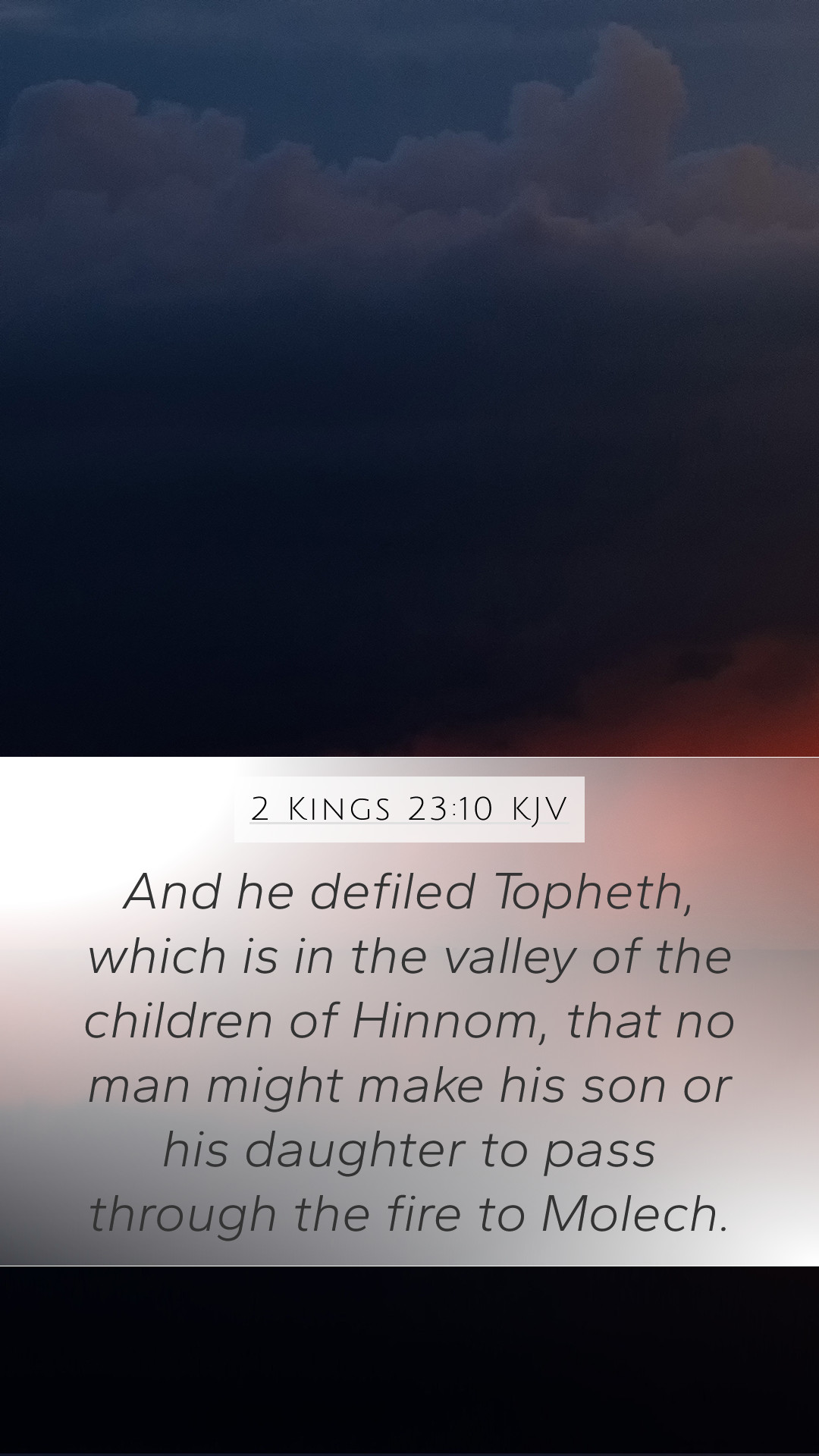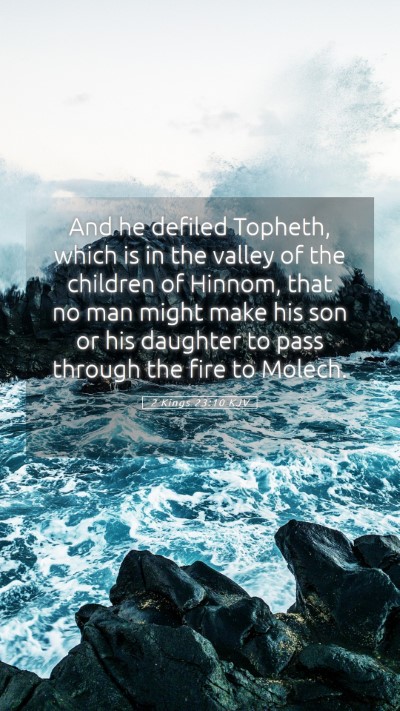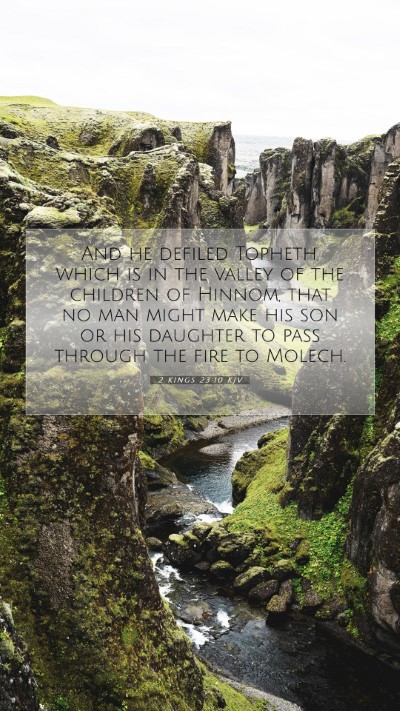Meaning and Interpretation of 2 Kings 23:10
In 2 Kings 23:10, we find a pivotal moment in the history of Judah during the reign of King Josiah. This verse reads: "And he defiled Topheth, which is in the valley of the son of Hinnom, that no man might make his son or his daughter to pass through the fire to Molech." This passage provides profound insights into the actions of King Josiah as he undertook extensive reforms to eliminate idolatry from Judah.
Contextual Background
Understanding the historical and spiritual context of this verse is crucial. Topheth, located in the Valley of Hinnom, was a site associated with horrific pagan practices, particularly child sacrifice to the god Molech. By defiling Topheth, Josiah was declaring a strong stance against these abominable practices that had persisted in Israel.
Insights from Commentaries
-
Matthew Henry's Commentary:
Henry observes that the reforms initiated by Josiah were aimed at purging the land of idolatry, exemplified by the desecration of Topheth. His actions indicate a righteous zeal for God's laws and a desire to restore true worship.
-
Albert Barnes' Notes:
Barnes emphasizes the significance of Josiah’s actions as a demonstration of God's judgment against the worship of false gods. By prohibiting such practices, Josiah sought to turn the heart of the nation back to Yahweh and safeguard the future of the children of Israel.
-
Adam Clarke's Commentary:
Clarke points out that the act of "defiling" Topheth symbolized a purification of the land. He notes the moral outrage against child sacrifice and stresses the importance of protecting the innocent in the light of divine law.
Theological Significance
This verse not only reflects Josiah's religious reform but also embodies the broader theme of God's demand for righteousness among His people. The rejection of Molech worship illustrates the importance of aligning one's life with divine principles. The act of desecrating a site of sin is symbolic of God's cleansing power and the hope of redemption.
Application to Daily Life
In contemporary times, 2 Kings 23:10 serves as a reminder for individuals to evaluate their own lives and the influences surrounding them. Just as Josiah removed the corrupting practices, believers are called to identify and eliminate any influences that detract from their relationship with God.
Cross References
- Leviticus 18:21: Prohibition against sacrificing children to Molech.
- Deuteronomy 12:31: Commands against following detestable practices of the nations including child sacrifice.
- Jeremiah 7:31: Warning against worshiping in the Valley of Hinnom.
Conclusion
2 Kings 23:10 highlights a crucial moment in a turning point for Judah as it navigated its spiritual identity and covenant relationship with God. Through the lens of the commentaries and the principles drawn from this text, we gain a clearer understanding of how to apply these biblical teachings in our lives today.
Further Study Resources
For those interested in exploring more about this verse and similar scripture, consider engaging with:
- Bible study groups that focus on the historical context of the Old Testament.
- Online Bible study platforms that offer commentaries and discussions on key verses.
- Bible study tools that provide insights into the original meanings and applications of scripture.
Keywords for Further Exploration
Understanding the meaning of Bible verses and deepening Bible verse interpretations can enrich your spiritual journey. Look into:
- How to interpret Bible verses effectively.
- The significance of Jesus' teachings in relation to Old Testament practices.
- In-depth Bible verse analysis for a more profound spiritual understanding.


